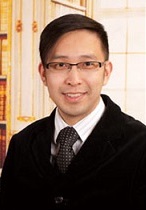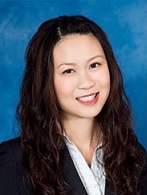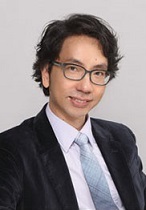通識教育模範教學獎 2015
時間: 3:30pm - 5:15pm
地點: 香港中文大學邵逸夫堂留足展覽廳
2015年度榮獲提名的老師有十六位。教務會通識教育委員會議決頒發「通識教育模範教學獎」予社會工作學系的陳智豪教授,生物醫學學院的李潔瑩博士,以及物理學系的湯兆昇博士。
陳智豪教授

Professor Chan Chi Ho, Wallace has been teaching in the Department of Social Work at The Chinese University of Hong Kong since 2010. He developed a new general education course, UGED1602 “Living with grief: Understanding death, dying and bereavement” in the academic year of 2012-2013. He treasures the communication and interactions with students much. He received also the Exemplary Teaching Award of the Faculty of Social Science in 2012 and the Young Researcher Award of the University in 2014.
I am honored to receive the Exemplary Teaching Award in General Education and am really thankful. This award is particularly meaningful for me, as it is given for my teaching of the course UGED1602 Living with grief: Understanding death, dying, and bereavement.
About six years ago, when I started my work at CUHK, I had a dream—a dream of developing a course on the topic of death, dying and bereavement. I once said that, “if possible, I hope that we may not need to learn about this topic only when we experience the most painful moment—the death of a loved one.” In the second term of 2012–13, my dream came true, and this course was finally offered.

To be honest, the title of this course, “Living with grief”, reflects to a great extent my teaching philosophy. If grief is part of our human experience, how can we face this experience in our life? I invite students to review, reflect on, and explore how we may face our own grief. Do we need to deny grief? Do we need to fight against grief? Or, may we accept grief as part of our personal growth and still say “yes” to life? A key question that I invite students to explore in this course is, “How may we live with grief but also live a meaningful life?”
Understanding death, dying and bereavement also gives me an insight into life: “Time is limited”. Death may bring us fears and tears but also a sense of urgency to make the best use of our time. Time is limited. How can we make the best use of time in this course? This teaching motto reminds us to treasure the time we are together in the course. It is also my invitation to the students: Search for the meaning of studying in the course, particularly in the context of limited time. In this way, I try to enhance students’ responsibility for their own learning. I invite them to make the course more meaningful together with me: It is not just a course; it is “our” course.

“Time is limited” also facilitates my reflection on what the most important thing is in teaching. With limited time, what should be emphasized? As a social work teacher, I think the essence is “values”. Depending on the nature of the course, we may have to impart different knowledge and skills. Yet, without understanding our values, such as our concern for those who are disadvantaged and our unconditional positive regard for human beings in general, this knowledge and these skills lose their real meaning. That’s why I make use of different learning methods. I dedicate songs to students in the lecture, or show video clips, and help them to reflect on their values in life and for humanity. Death is not special, and in fact it happens every day. But death is important, as it reflects our genuine concerns for humanity and life. Genuineness is important in my teaching as a social work teacher. I have realized that my teaching philosophy is something that I not only “teach” but also something that I genuinely “live”. Without living the teaching philosophy, I cannot set a good example of being a genuine social work teacher.
I really treasure the opportunity of meeting different students in the GE course. Some of them are interested in the topic of death and bereavement and would like to know more. Some attend this course with their own unique bereavement experience. I am thankful that I have a chance to witness their personal reflections and growth in this course.
I would like to say this course, “Living with grief”, is not only about death, dying and bereavement but also about life, living and meaning. I always share a teaching motto with students, “Time is limited”, but add this at the end of the course: “Time is limited, but limited enough to make our life meaningful”.

李潔瑩博士

Dr. Lee Kit Ying, Rebecca obtained her BSc and PhD degrees in Biochemistry from The Chinese University of Hong Kong. She is currently Lecturer in the School of Biomedical Sciences, experienced in teaching biochemistry, cell biology and physiology. Dr. Lee has been teaching the University General Education course UGEB2791 “Perspectives in Clinical Sciences” since 2008. She is enthusiastic in teaching and received the Teacher of the Year Award of the Faculty of Medicine in 2009-10, 2013-14 and 2014-15.

I am very honored to receive the Exemplary Teaching Award in General Education. This award not only recognizes my achievements, but also motivates me to continue to devote my best efforts in teaching.
“Different teaching approaches are needed to explain the same concept to students with different backgrounds”
When I was a kid, I did not dream of being a teacher. During my postgraduate studies in biochemistry, I got a lot of opportunities to teach, which inspired me to become a teacher. From these experiences, I came to realize that different teaching approaches are needed to explain the same concept to students with different backgrounds. This is particularly true in teaching general education courses. I found that teaching medically-related topics to students from different disciplines and with diverse backgrounds can be extremely challenging. I always endeavor to engage and motivate my students during class by using a variety of teaching tools and techniques. For example, the use of the instant classroom response system (uReply) enables teachers getting immediate feedback on students’ understanding towards difficult concepts, and the development of the tailor-made teaching courseware of UGEB2791 “Perspectives in Clinical Sciences” facilitates students’ learning process. Using movies in class is also effective for arousing students’ interest in medical topics. I use the movie “Summer Snow” 《女人四十》 for teaching Alzheimer’s disease, and the Hollywood movie “The Island” to bring out problems in human cloning. In order to cater for different students’ need, it is necessary to adjust the level of the course from time to time.

“I always remind myself to think like I was a student”
General education at CUHK is fun because students can pick any courses that they find interesting to explore, to go beyond their own field of study. I enjoy teaching the course UGEB2791 “Perspectives in Clinical Sciences”, and would like to help students to develop their interest in medical topics. To understand the students’ interest and expectation for the course, a student expectation questionnaire is formulated and distributed to them at the beginning of the term. Students can tell me what they want to learn in my course, and I will modify the course contents slightly every year to cater for their interests.
I always remind myself to think like I was a student. As teachers, we can sometimes get very excited when talking about the subject that we are familiar with. We might forget what it was like when we learn a new concept for the first time. We need to teach slowly as not all the students have a fundamental understanding of a concept, they might need more time to digest the new knowledge. I am so grateful that my students are always willing to share their thoughts with me. They once told me that it was difficult to read the words clearly on the white board for those who sat at the back of the lecture theatre, and PowerPoint slides with a light background would help them to jot notes easier (and to save ink for printing as well!). I discover that there are many small areas that teachers might have missed! I believe that teaching is a life-long learning process for myself, and students can be a good teacher in that sense because they teach me how to become a better teacher. I enjoy talking with my students, and, from time to time, I learn from them as well.

“To become a T.E.A.C.H.E.R.”
This is how I interpret the word “TEACHER”:
Teaching: to teach the students
Engagement: to engage students during class
Assistance: to assist those who have difficulties in learning
Creativity: to teach creatively and make learning fun
Hearty: to be enthusiastic and enjoy teaching
Encouragement: to encourage students to develop a positive learning attitude
Reflectiveness: to become a self-reflective teacher and always strive for improvement
I believe that teachers are not only responsible for passing on knowledge of a subject, but also helping students to develop a positive attitude towards learning because it is a lifelong process. My ultimate goal for my teaching career is to help students to take on their own initiatives and inspire them to become active learners throughout their lives. I regard it an achievement of mine if students can apply what they have learnt in my class to solve problems in their daily lives.
湯兆昇博士

湯博士於香港中文大學取得物理學博士學位,其後在物理系任教本科課程及通識科目,現任高級講師,兼任理學院科學教育促進中心副主任,曾獲得「物理教學獎」及兩屆「理學院模範教學獎」。湯博士一直熱心科學教育,於過去十多年與教育局及其他機構合作,建立了多個科學教育網站,利用日常生活情境和創新的實驗推廣物理,提供教師培訓,並帶領理學院各學系參與多個教育計劃,舉辦資優課程,參與課程設計,編寫多套中學物理及綜合科學教科書。湯博士致力拓展科普教育,在報紙、電視及社交媒體講解有趣科學,擔任科技比賽評判,並到中小學舉行活動。
曾經有人問我喜歡教物理主修科目還是通識科目,我說兩者都喜歡。物理主修科目是我的本行,所需的預備時間較少,教起來也比較輕鬆。通識科目無論在內容和手法上都很難設計,但就更具挑戰性,所涵蓋的視野也更廣闊。中大通識教育的優良傳統,就是透過研習本科以外的課題,讓學生打開心窗,突破本科的框框,從別的角度去思考和研究問題。
教了這麼多年通識科目,我的感覺是現代大學生越來越忙,不但是本科的要求提高了,自小被催迫式的教育洗禮,課外活動、對外交流等又要樣樣皆能,學生願意花在通識科目的時間不多,只要你有一兩課令他們感到沒趣,他們就翹課離你遠去。要向缺乏理科背景的學生教科學,抓住他們的注意力,加深他們對陌生概念的感受,都是很重要的。運用多媒體、錄影片段、學習模組等工具和清晰簡潔的表述,固然十分有用;但更重要的是明白學生在課堂上最想接觸的,其實是一位具有個性、教學熱誠和感染力的老師,透過活潑的手法、通俗的比喻、有趣的故事、個人經歷、活動或示範實驗,讓學生投入於課堂之中。

設計科學及科技的通識課程應嘗試包含較廣泛的內容,以展示科技的歷史、研究方法、科學與人類文明的互動及其對現今世界的影響等。課題的完整性和技術細節反而不是首要的考慮。教授UGEB2401「天文學」和UGEB2510「人類與星辰」兩科正好為我提供很多教學實驗的機會。淺談相對論、宇宙學,讓不同背景的學生明白現代天文學的方法、人類在探求宇宙奧秘的時候如何找到自身的來源、古文明的星空文化和宗教和政治的關係、比較古希臘宇宙模型和中國宇宙模型的哲學和數理成份、為何星占是偽科學、中國古代天文學是否有現代科學元素等等,都是我在課程中喜歡探討的問題。能遊走於不同領域的課題之間,剪裁出能突顯主題的細節,作出比較和論述,是設計通識課程所需要付出的心思,也是教授這些科目帶來的獨有樂趣。在邊教邊學的過程中,我所學習到的新知識新觀點,往往比我教授的要多。
UGEB2510「人類與星辰」所涉及的課題廣泛,文理兼備,有時更需要從科學史或科技操作的細節綜合出宏觀的圖像,學生未必能在短時間內掌握課程內容,尤其在閱讀及寫作上倍感困難。所以我要求學生編寫閱讀報告時,會準備相關的指引及例子,並在堂上向學生講解要求。惟學生對指引的了解因人而異,所以我在時間和體力容許下,會儘量個別地接見學生,討論進度。有時學生在寫文章時,只顧羅列細節而不了解內容,或對主題概念模糊,未能組織相關的資料支持論點。為了有效修正這類問題,我會透過與學生會面,並因應個別學生的能力、進度和編寫的內容給予規範和建議,並提供相關參考資料。這對學生編寫閱讀報告有很大的幫助。

現代大學教育著重全人發展,鼓勵學生發掘個人的能力和自覺性,以便日後在社會找到適合自己的崗位。老師的角色並不是向學生灌輸某一套價值觀,而是協助學生發掘自己的潛能,並讓學生了解自己在生命中每個階段的需要。通識教育正好為啟發學生提供了一個良好的機會。透過與學生討論某些課題—例如科學與宗教的矛盾、宇宙浩翰相比於人的渺小、科學及理性是否能解決人生問題,或在會面時觀察學生的言行與學習態度,不難在學生身上發現一些成長問題。如果能藉著這個機會給予他們適當的支持和啟發,可能對他們日後的成長有重要的影響。如遇到學生有情緒問題,甚至是情緒病,也可鼓勵他們積極面對問題,並轉介校內外專業人士處理。多年來我接觸了不少學生,也發現有學生曾因為我的言行和關懷,使他們的生活發生了一些根本的轉變,這是我意想不到的,也很值得感恩。
從事教育工作,需要啟發學生有長遠的眼光,培養紮實的分析能力和知識基礎,了解自己需要的同時,能以同理心關懷別人。如果要我用一句話去概括我的教育理想,我會引用中大教育學院黃顯華教授的名言:
「抬頭望星、腳踏實地、從心開始。」
願與各位同事及同學共勉之。

